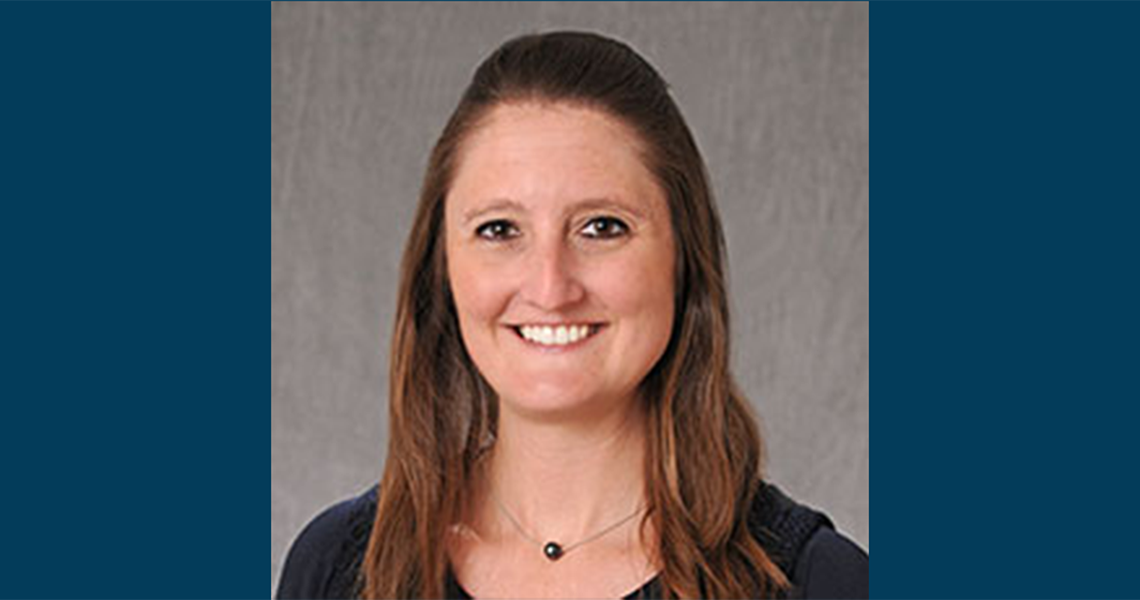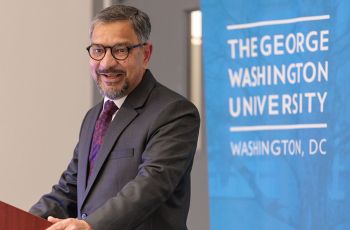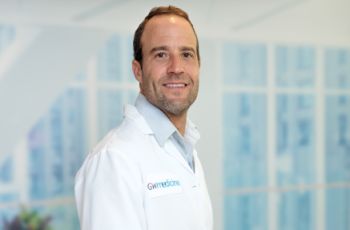WASHINGTON (July 16, 2020) - The National Institutes of Health has awarded $3.6 million to Rebecca Lynch, PhD, assistant professor of microbiology, immunology, and tropical medicine at the George Washington University (GW) School of Medicine and Health Sciences and member of the GW Cancer Center, to investigate HIV-1 resistance to antibody treatments.
Immunotherapy with monoclonal antibodies - single antibodies derived from the same parent B-cell - has been successful against autoimmunity and some cancers. Lynch and her team suggest that treatment options with antibodies, especially redesigned molecules based on broadly neutralizing antibodies (bNAbs), should be explored in the context of the virus.
HIV-1 has the ability to rapidly escape antibodies by generating mutations in its variable envelope gene. This creates an urgent need to gain insight into the virus’ escape from bNAbs, which neutralize various HIV-1 strains, to aid in more effective combination antibody strategies to be used toward HIV-1 therapy, cure, and prevention.
“Antiretroviral treatment is very successful in treating HIV, but it does not cure HIV," said Lynch. “We are focused on utilizing antibodies as alternative therapies or in strategies to cure HIV instead of just treating it. With this study we hope to provide more tools to use against HIV."
The team believes that HIV-1 escape from combination bNAbs will be limited when the mutations required to escape all bNAbs exert the maximum replicative fitness cost across diverse viruses, showing that replication cannot easily be restored through compensatory mutations.
Just like antiretrovirals must be taken in combination to be effective against HIV, antibody combinations will need to be used to be effective. To assess the problem of identifying effective combinations, Lynch is collaborating with an interdisciplinary team of researchers from University of California Riverside, University of Cologne, and Los Alamos National Laboratory in New Mexico.
“Through this work we will identify effective combination antibody cocktails that will limit the ability of diverse HIV-1 to escape from antibody pressure," Lynch said.
The project, titled “Quantifying the fitness cost of HIV-1 resistance to broadly neutralizing antibodies," will be funded through April 2025.
Media: For more information or to set up an interview, contact Ashley Rizzardo at amrizz713 [at] gwu [dot] edu (amrizz713[at]gwu[dot]edu) or 202-994-8679.
Re-posted from the GW School of Medicine and Health Sciences
###
About the GW School of Medicine and Health Sciences
Founded in 1824, the GW School of Medicine and Health Sciences (SMHS) was the first medical school in the nation’s capital and is the 11th oldest in the country. Working together in our nation’s capital, with integrity and resolve, the GW SMHS is committed to improving the health and well-being of our local, national and global communities. smhs.gwu.edu
About the GW Cancer Center
The George Washington University (GW) Cancer Center is a collaboration of the George Washington University, the GW Hospital and the GW Medical Faculty Associates to expand GW’s efforts in the fight against cancer. The GW Cancer Center also incorporates all existing cancer-related activities at GW, with a vision to create a cancer-free world through groundbreaking research, innovative education and equitable care for all. Learn more about the GW Cancer Center at gwcancercenter.org.




